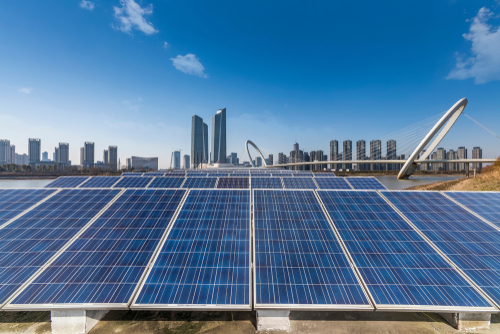OFF-GRID AREAS, MAY KURYENTE NA: EU, DOE power 100,000 households in Mindanao
- February 21, 2019
- 0

Around 40,500 solar home systems generating 50-watt peak capacity will be installed in remote off-grid areas in Mindanao, which will be implemented under the Access to Sustainable Energy Program (Asep) Photovoltaic (PV) Mainstreaming program.
The EU granted a €60-million (P 6 billion) fund to the Philippine government to implement a program that would increase the percentage of indigenous and renewable sources in the country’s energy mix, helping make electricity accessible to remote areas while implementing new energy-efficiency strategies.
The EU Delegation’s Head of Development Cooperation Enrico Strampelli and DOE Undersecretary Felix William B. Fuentebella led the commemoration of the switch-on ceremony for solar power of electrification and livelihood projects under the Asep.
Installations have been completed in areas in Sitio New Mabuhay, Barangay Little Baguio in the Municipality of Malita, Davao Occidental.
Aside from EU and DOE, representatives from National Electrification Administration, Energy Regulatory Commission, National Power Corp., electric cooperatives, and local gov
ernment units were in attendance of the ceremonial switch-on.
The EU has encouraged other local stakeholders to invest on sustainable and reliable energy projects.
In a Business Mirror report, EU Project Manager for Cooperation Section Willy Hick said Asep encourages investment on innovative energy solutions by providing investment support.
One of Asep’s aim is to provide a €21-million investment support package for pro-poor and climate-resilient innovative investments in the power sector.
Under Asep, the EU funded a technical assistance and capacity building for reform worth €7-million. Another €29-million was also invested through the aid of World Bank, to install 40,000 solar home systems in Mindanao.
Overall, the group provides €57 million worth of funds to help the Philippines promote sustainable and reliable energy.
“We wish to extend the program,” Hick was quoted as saying.
Hick said the EU is planning to implement a “blending instrument” which will be a combination of loans and grants in a form of investment to help viable businesses and projects that
will generate new connections and add power generating capacity.
EU will still look at the possibility of implementation of “blending operations” and opportunities in the renewables sector in the country, he added.
It will be in line with the Electrification Financing Initiative, or the ElectriFi program of the EU, which is currently being implemented in Africa.